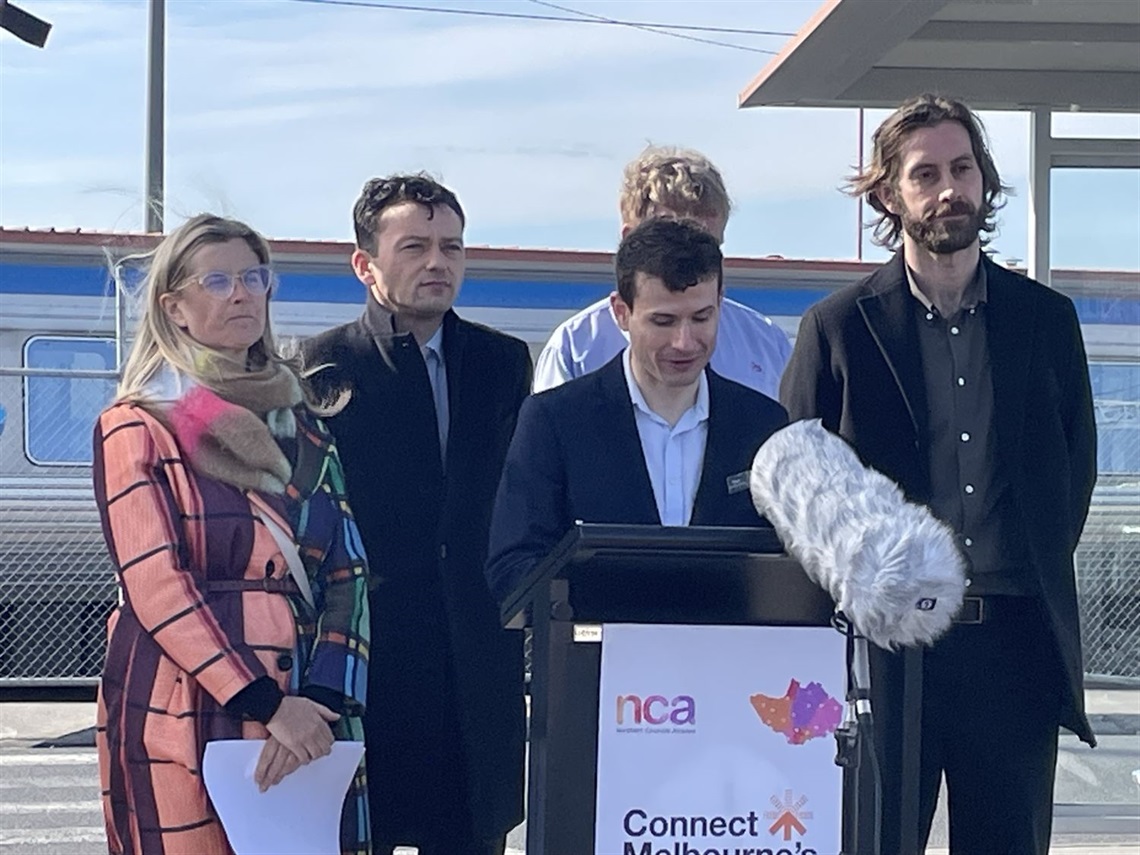
Seven Councils in Melbourne's north are seeking urgent action to improve the region's transport system, in an effort to address severe traffic congestion, long trips to the nearest hospital, challenges in accessing jobs and education, and increasing social isolation impacting the lives of thousands of residents.
The Northern Councils Alliance, comprising the municipalities of Banyule, Darebin, Hume, Merri-bek, Mitchell Shire, Nillumbik and Whittlesea, today launched its new transport advocacy campaign: Connect Melbourne's North: It's time to transform our transport.
Saying communities deserve better, the campaign is calling for critical improvements to transport in Melbourne's north, including improved bus and train services, and other measures to help reduce congestion on our roads.
Kicking off the campaign is a call for Federal and State governments to duplicate and extend the Upfield rail line.
Currently the train line terminates at Upfield, far short of the growing community, and the single train line between Gowrie and Upfield station results in one of least frequent services in the network, every 15 to 20 minutes in peak. Frequent delays also add to the frustration of communities in the area.
The extension and duplication will support current and future communities to access jobs and essential services throughout the corridor, helping people address the cost of living crisis, improving social connection and reducing climate change emissions.
This will support the existing and future populations of Merri-bek, Hume, Whittlesea and Mitchell.
This adds to the current regional priorities of revised bus networks, better active transport infrastructure, support for electric vehicle transition and other large rail upgrades.
Melbourne's north is home to one million people or 20 per cent of the population of Greater Melbourne. It's one of the fastest growing regions, with a population of 1.5 million forecast by 2036 – a growth rate of 2.8 per cent compared to 1.6 per cent for Greater Melbourne. One in six Victorians lives in the northern Melbourne region.
This population growth has not been matched with the necessary investment in transport. Over the years this has caused massive road congestion and delays in connecting between transport options – limiting business growth and access to jobs, education and health services, and contributing to social isolation.
Our transport system is not supporting the current population and there is no plan for the future population.
Today, our community must rely on a public transport service that does not meet their requirements or else drive their own vehicle, which leads to increased congestion. In the north, a journey that is a 35-minute drive by car can be two hours or more by public transport, and weekend services in many areas across the region are almost non-existent.
The NCA has commissioned comprehensive research reports on the region's transport needs and is now working with other regional stakeholders to advocate for the reports' recommendations. But strong engagement and financial and policy support from state and federal governments are needed to achieve those transport goals.
Better transport options will stimulate economic growth across Melbourne's north and improve quality of life for residents. Effective transport solutions will bridge the gap between inner urban and outer areas so that everyone has equal access to job, health and education centres.
Seamless connectivity is needed between different transport modes to ensure that commuting becomes smoother and hassle-free. Sustainable transport options are also key to future planning.
Mayor Ben Ramcharan said funding for increased bus services and improved connectivity between townships is essential in Nillumbik.
"High-quality active transport options will provide desirable, safe and accessible transport and recreation opportunities for our residents and visitors," he said.
"Together with the provision of integrated bus routes, this will significantly lift the number of transport options available and improve the health and wellbeing of our community, especially our people who live in rural communities."






